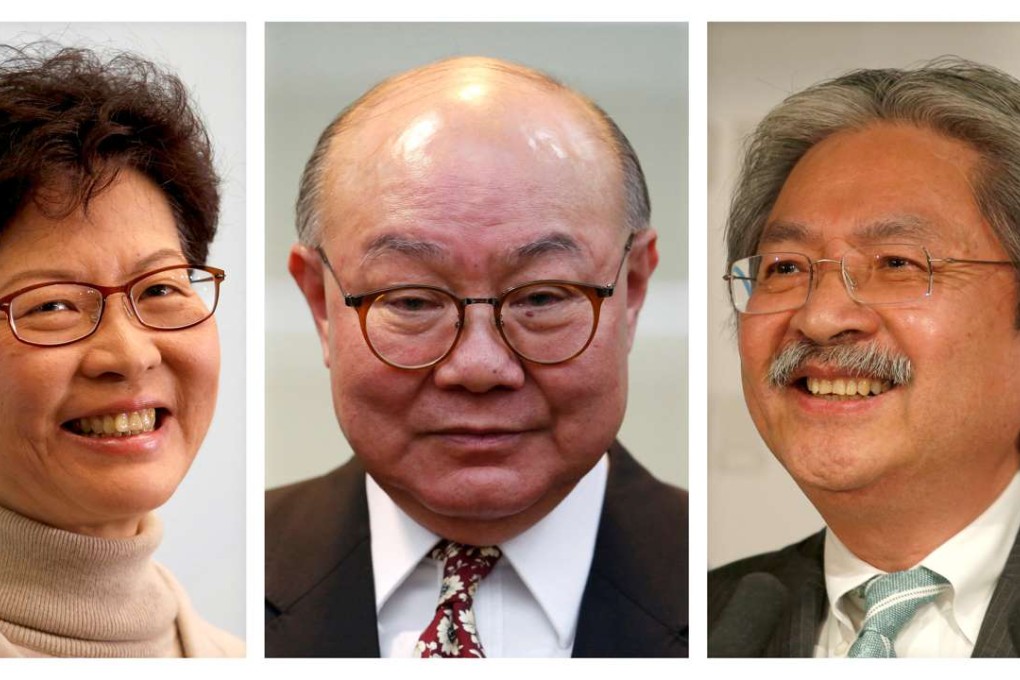Can any of Hong Kong’s leadership hopefuls regain trust, and restart political reform?
Raymond Mak weighs up the three candidates in Hong Kong’s leadership race to see if any could serve as the all-important bridge between Beijing and the city

One of the issues drawing the most attention in the chief executive election race is political reform. All three candidates have promised to mend the fissures in society if elected, and acknowledge that the relaunch of political reform is a contentious issue that they have to address as the city’s future leader.
Favourable conditions are needed for this to happen, but how could the next leader create such conditions?
In hindsight, the major reason for the failure of political reform was the lack of trust among stakeholders in society. Therefore, to relaunch the process, there are two keys to success: act as a bridge between the pro-establishment and pro-democracy camps; and, make proposals that are acceptable to Beijing and most citizens.
Crucial for next Hong Kong leader to have central government’s trust, according to Beijing official
Carrie Lam, in her own words, on everything from nicknames to why some Hongkongers dislike the mainland
John Tsang’s empty words on political reform
If Tsang manages to secure the central government’s trust and support, which I still believe he has a fair chance of doing, he would seem to be the best person to help bring Beijing and the people together to reach a consensus on political reform.
Whoever wins, the next chief executive needs a clear vision for Hong Kong, a solid policy platform and a cross-sector governing team of the highest calibre in order to implement the needed economic and social policies for the city, as well as deliver on his or her election promises. This is the best way to mend the fissures in society, which is critical to creating the conditions needed to relaunch the reform process.